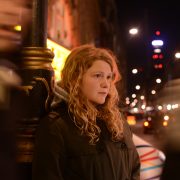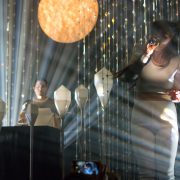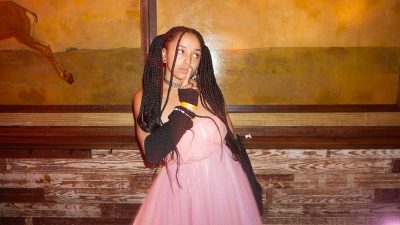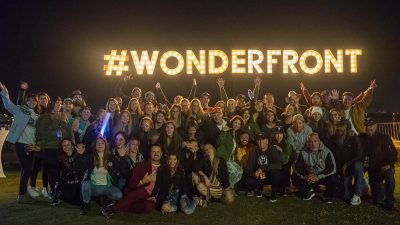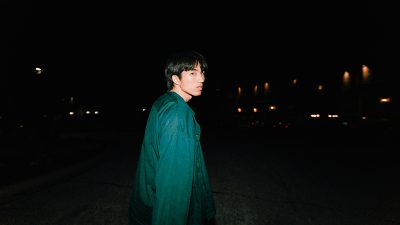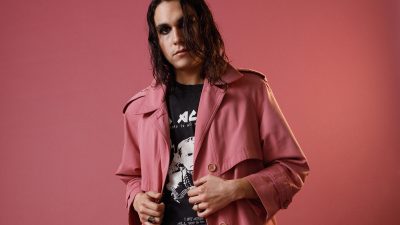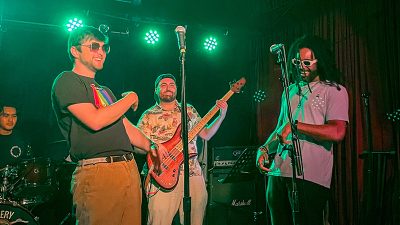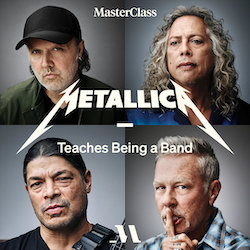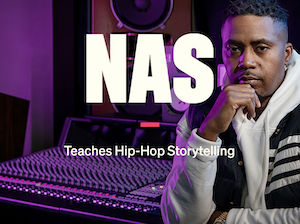For the love of folk: An interview with Bride & Groom
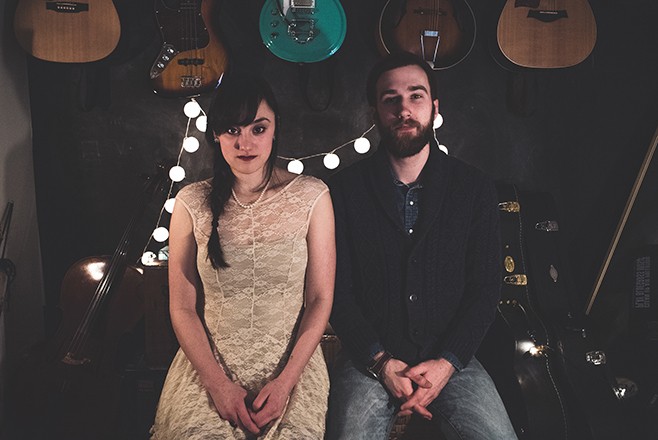
Many songs begin with a love story. Whether it’s a fleeting, lustful affair or a slowly burning romance, much of our favorite music is rooted in the age-old tale of boy/girl meets boy/girl, boy/girl grows to love boy/girl, they write a song about it, and so on. Montreal-based folk duo Bride & Groom are no exception to this; in fact, they’re living proof. Comprised of singer-songwriter Jesse Daniel Smith and master cellist Kaitlyn Raitz, the adorable pair joined forces in 2013 after Kaitlyn reached-out to Jesse via the Internet. But this was no Tinder match; the two originally united with the intention of making a unique sound that combines cello with the acoustic guitar and honest lyrics. The relationship, and pretty sweet combined collection of instruments, was an unexpected bonus.
With the recent release of their first full-length album On the Run, Bride & Groom have deep-dived into the folk music landscape with their near sights set on shows at Toronto’s NXNE and The Montreal Folk Festival. Eager to engage with their fans and audiences through vlogs, taped covers, and their own original songs, these two are on the winding road to success, and bound to enjoy their journey.
Below, our interview with Bride & Groom’s Kaitlyn and Jesse.
Laura Eley: Your first album came out today. How does it feel?
Jesse Daniel Smith: I feel really good about it but simultaneously it’s a growth from our EP. It was really effective for what we needed to do at the time but as our sound evolved and we got to know each other as couples and as players and song writing, the EP started to distance itself from us in terms of being able to represent us properly, so we’re really happy right now to release something that is like ‘this is something that we now sound like.’ And as we get better still, and if at some point we start adding band members, then we’ll distance ourselves from this record and that’ll be the cue that we need to make a third one.
Kaitlyn Raitz: Jesse and I met on the Internet, technically speaking. I graduated in December 2013 from McGill in Montreal, and I’d heard his music and knew him from the Internet, so I was like ‘let’s get together and jam because I’m not in school any more, I’m freaking out, and I need a project.’
JS: Kaitlyn got her Master’s in cello, by the way. So, I was like ‘we need to apply this knowledge’.
KR: Jesse was eager to find someone who was as dedicated and gung-ho as him.
JS: I was used to playing with people who were very casual about music, who more so saw it as a hobby, which is totally fine. But I was more so like ‘this is what I want to do.’ I really wanted to associate myself with someone who was as eager to go down the very uncomfortable route to musical success.
KR: He wrote me a love song and I was like ‘we can’t date because we’re going to be in band,’ and that lasted another week, and here we are.
JS: One of the major things that differentiates itself on this record is that we wrote it with cello in mind, all of these pieces came together, they were written as a unit. Whereas the first EP was written as ‘this is the song that’s playing and let’s add cello’ rather than it being conceived with cello in mind.
LE: Were you making folk music before coming together?
JS: I wouldn’t say it was folk music, I only really started to clue-in to what folk music actually is when Kaitlyn and I saw Inside Llewyn Davis, a Coen brothers movie —
KR: And our first date.
JS: –Yeah. It really exposed me to this dense, true folk/traditional music that inspired this album. [But] I played acoustic music, and I also had this deep foundation in electronic music, because again I was playing alone all the time I would often mess with samples and drum machines. I was extremely influenced by Hall & Oates, who would make this whole band on their computer at the time. So, I ended-up getting this really big, acoustic, singer-songwriter thing going, and then I stripped it all down before I met Kaitlyn, and that’s when we started incorporating the cello and the drums.
KR: I grew-up listening to country music, that’s what family listened to, Garth Brooks. I played the cello because that’s what I liked. By the fifth grade I thought it was cool and big, and classical music is just the way to play cello, and as I went along, I kept wanting to do ‘cool things’ on cello. I went to my first fiddle camp, which is basically non-classical strings camp. So they have old-time music, bluegrass, jazz, rock, and I realized I wasn’t cool at all. [At camp] it’s all about listening to it. From the beginning, I’ve always wanted to keep classical [in my cello playing], but meld it together with folk.
LE: What’s the folk community like in Montreal?
JS: From what I can gather, there is a small but loyal English folk community in Montreal that’s a little tough to get into. We just got invited to play the Montreal Folk Fest, so we’re hoping that once we play that we’ll be able to do more folk-based Montreal gigs. Right now, it’s like you put a show together and hope your friends come out.
KR: We went to Kitchener a few months ago and had people drive from Boston to see the show. I know that might just be the ‘lore of the exotic band in other cities’ – like ‘oh, they’re from Montreal’ – but I’m interested to see what happens after the Folk Festival, too.
LE: Why do you play folk music? What about it speaks to you?
JS: What I’ve always been about is song writing and lyricism, and I think that’s why folk music lends itself nicely to me because I at least like to pride myself on having strong, truthful lyrics that are not too metaphorical or not too poetic or complicated; it’s enough of both. The easiest way to get that across is to not be muddled-up with a twelve-piece band or something. I feel like often in rock music and indie-rock, lyrics kind of fall by the wayside of strong melody — and there’s nothing wrong with that — but because my strong suit is lyricism it kind of was a natural progression for me to keep the music relatively simple so that the songs themselves have space to shine.
KR: Traditional folk music has been around for so long, and it’s really just music of the people.
JS: If I listen to 20-year-old Bob Dylan it just does something to me that other music doesn’t do. It’s like all the dopamine in my brain is released at once. I’m always chasing that high and I want to reproduce it for other people.
LE: You guys have produced and filmed multiple song covers. How do you know when a song is cover-worthy?
JS: The quickest way is when we know we need to put out content. It’s very important to us to constantly be giving people new things to be listening to us and following us on social media, and we want to make sure we take the time to reward people for those things and we try and produce a lot of free content so that people can feel validated in following us. Often what happens is we feel like we haven’t put out content in awhile, so we’ll look at songs we’ve been listening to or songs we’ve been wanting to play — the most recent song was from The Wedding Singer, “I Wanna Grow Old With You” — and then we’ll take a shape, let’s say a song is a certain way, we’ll push it through the whole of cello, guitar, and our instrumentation, and you end up with a song that doesn’t sound like the original. As long as we don’t play songs that are just guitar-cello, we’re safe.
LE: Would you cover a folk song?
JS: The first song we ever [covered] was a folk song called “Let Her Go,” and because it was already a folky song, I went the other way with it. I put drums and electric guitar –
KR: I freaked out because it was our first collaboration and was like ‘is this what you think Bride & Groom’s going to be?’
JS: I was just like ‘no, we just can’t do the same song again in the exact same way’. In this case, the idea of putting folk songs up is a good one because it seems to make sense, but rather than do that – especially because of how much work it takes to put out one of these covers because we also do a video that pairs up with it, it’s a ton of work. The last step of it is to ironic, to go like ‘oh we’re going to do a Rihanna song and you’re not going to expect that,’ or an LMFAO song, but for me that seems too easy, like we’re going to make a ballad out of a club song that you wouldn’t expect. It’s trying to find that balance of getting songs that people like and doing it in a way that’s interesting.
KR: And then it’s factoring in, is this song relevant right now. We did a Game of Thrones cover for the day Game of Thrones came out.
JS: It was really effective on Facebook but not that effective on YouTube. Whereas we did ‘You Are My Sunshine,’ and the opposite was true. Facebook is really a trending beast whereas YouTube is not so much.
LE: What are you most looking forward to at NXNE?
KR: We found out about NXNE after we had already planned something during that time, but we really wanted to play it. So we’re heading down to New York and playing two shows in New York, saying hi to my family, then flying [to Toronto] on Thursday and then we have to get back to Montreal for the Folk Fest on the 20th. So, unfortunately we’re not going to be experience anything else other than our show that night.
JS: Luckily, our show is pretty late and we arrive early so we’re going to hang around Kensington Market, I love it. I’m totally biased because I’m receiving a guitar endorsement while I’m there, but we’ve been to Toronto a number of times and it’s an awesome city.
KR: We love it.


